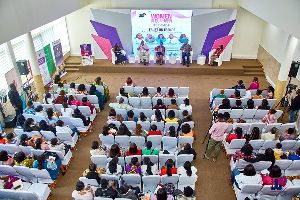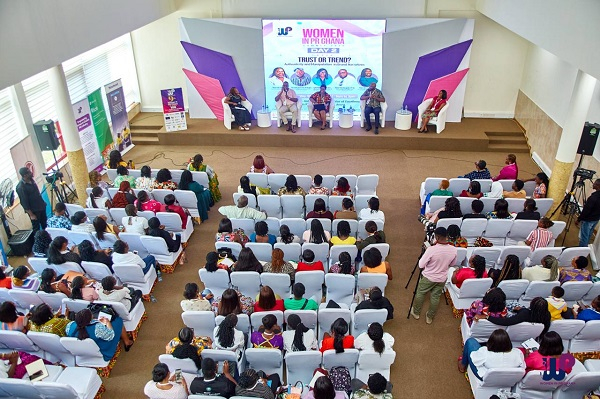 PR professionals have been urged to take ownership of ethical culture, rather than delegating it
PR professionals have been urged to take ownership of ethical culture, rather than delegating it
The 2025 Women in PR Ghana Summit has sparked a vital industry-wide conversation on redefining public relations in an era of misinformation and conscious consumers.
Held under the theme “Building Authentic Brands as Ethical Storytellers,” the two-day summit brought together top communications professionals to challenge outdated PR norms and promote value-driven storytelling, inclusive narratives, and long-term trust-building.
In her keynote, renowned author and storyteller Petra Aba Asamoah emphasised that ethical communication must be a strategic priority, not a box-ticking exercise.
“Reputation isn’t managed during crisis, it’s built through intentional, proactive communication,” she said.
“In this age of broken promises and rising distrust, ethical behavior and values-driven storytelling are true competitive advantages.”
She called on executive leadership to take ownership of ethical culture, rather than delegating it to compliance or PR teams after damage is done.
Akosua Kwafo Ogyiri, Communications Manager at WaterAid Ghana, took aim at exploitative storytelling in development and advocacy spaces.
Her session, “Voices We Don’t Hear,” challenged PR practitioners to rethink one-sided narratives and embrace co-creation.
“Representation is not a buzzword, it’s a justice issue,” she said. “We must stop telling stories about people and start telling stories with them.”
She urged communicators to avoid white-savior tropes, prioritize consent and accountability, and center agency over sympathy.
A dynamic panel explored the blurry line between authenticity and manipulation in influencer marketing. Titled “Brand Authenticity and Influencer Ethics in the Age of Social Media,” the panel featured blunt critiques of trend-chasing at the expense of integrity.
Derick Romeo Adogla, Communications Lead at Newmont’s Ahafo North Project, warned, “If your values aren’t in your DNA, then what you call authenticity is just decoration.”
Shirley Tony Kum, Communications Manager at Vivo Energy, was even more direct: “Manipulation is still lying. If your work requires half-truths to gain equity, leave the room. Truth has the power to trend.”
Naa Dzama Amu, Communications Manager at Olam Agri, added, “Authentic brands don’t just say the right things, they live them. Choose influencers who reflect your reality, not just your reach.”
In a virtual address, Doris Casares, Global CCO at Mango (GWPR), brought a global perspective to the discussions. She emphasised grounding brand strategy in empathy, history, and purpose.
“Brands are not just logos; they are people. Relevance requires trust, value, and deep stakeholder understanding,” she said.
She encouraged collaboration with internal teams, not just top-down messaging, particularly when seeking buy-in for purpose-driven initiatives like CSR and internal communications.
Day 1 also featured a panel on “Can Social Media Shape Brand Narrative Ethically?” moderated by Lorrencia Nkrumah, Communications Specialist at Nestlé Ghana.
Ruddy Kwakye, CEO of Rave Group, warned against misleading headlines and clickbait.
“Ethics is the boundary of our communication. If you feed the algorithm garbage, you’ll get garbage. If you feed it right, you’ll get the right outcomes.”
Makafui Ayimey, Founder of Accra Goods Market, stressed the importance of internal culture, “When your staff don’t feel they belong, you have a brand problem. Happy employees are your most authentic influencers.”
Closing the conversation, Maukeni Ribeiro, Brand & Communications Strategist, urged PR professionals to manage their own visibility.
“We do PR for everyone else but ourselves. It’s time to build our own trust capital.”
She emphasised pre-launch staff engagement, noting, “Employees are your first audience—and your strongest ambassadors.”


